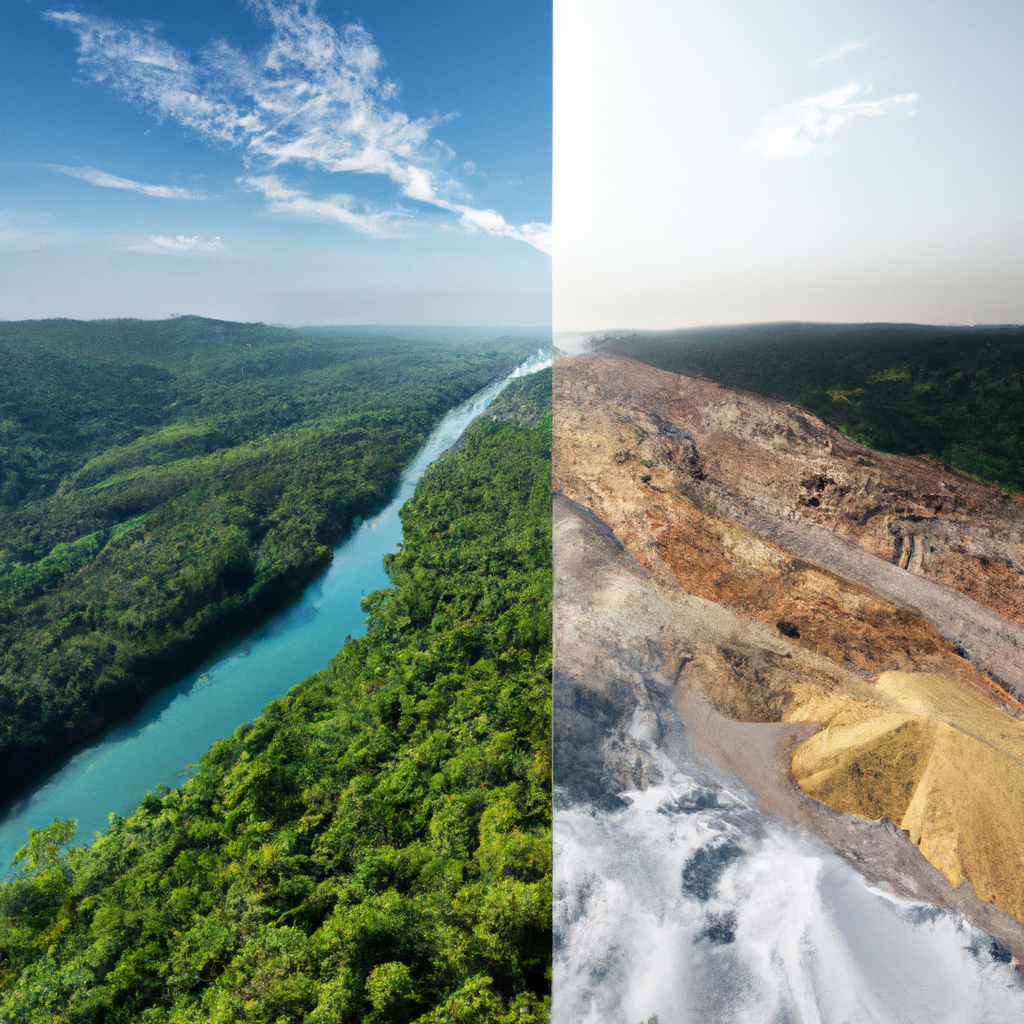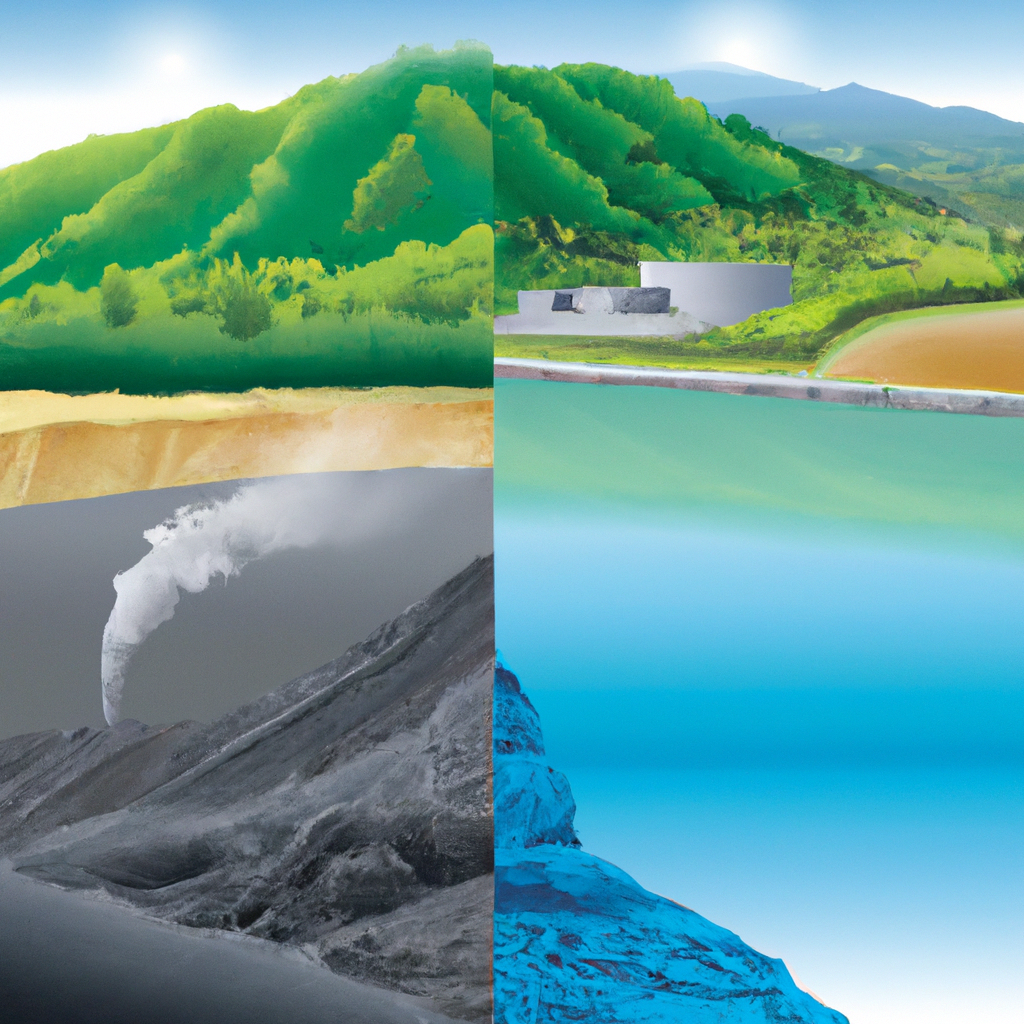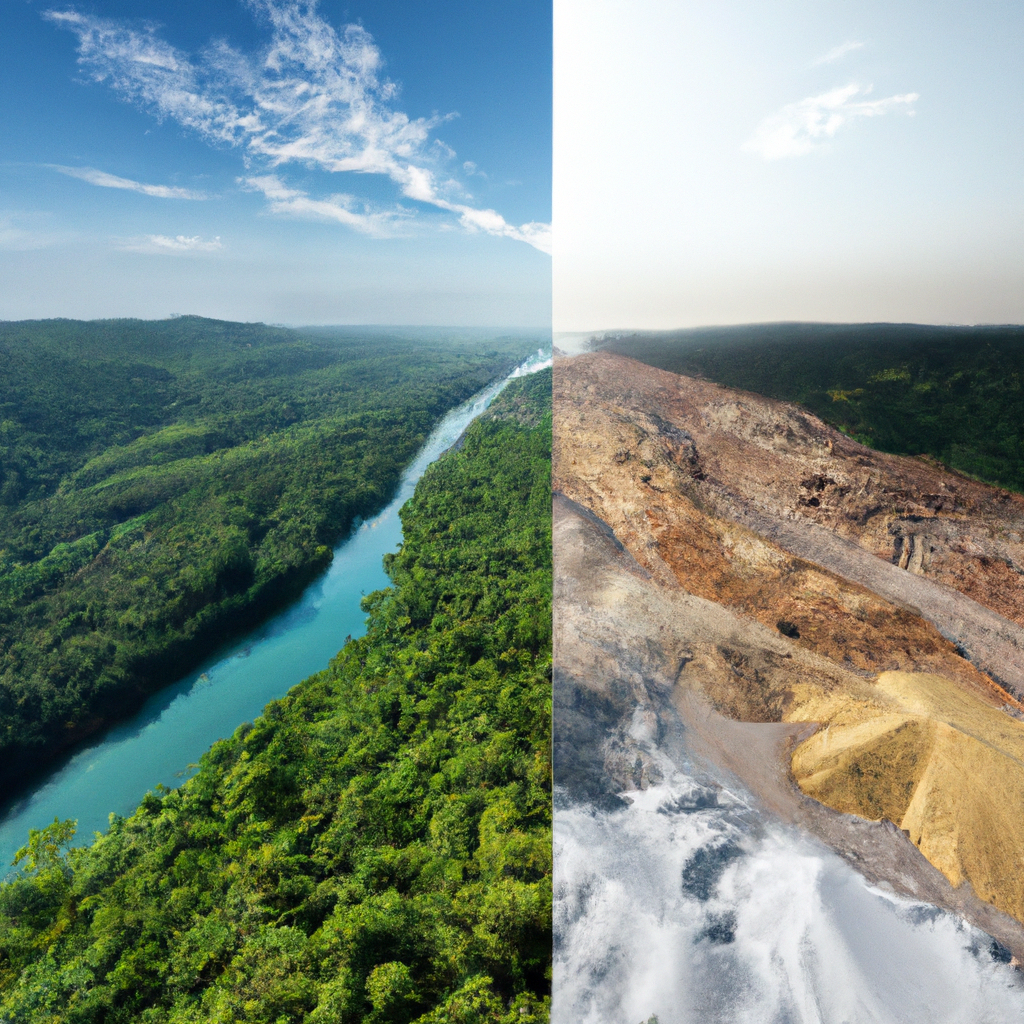Imagine walking into a world where the glittery indulgence of gold has serious ethical repercussions. In the article, “The Environmental Impact Of Gold Mining: Ethical Considerations”, you’re invited to explore the intricate web of impacts associated with the gold mining industry. Not only does it shed light on the harsh environmental consequences, but it also takes you on a thought-provoking journey through the ethical lens. So, brace yourself as you uncover a gold mine of insights on how this precious metal could be affecting your planet.

Understanding Gold Mining
Gold mining carries a significant historical and cultural weight, holding a prominent place in human civilization for thousands of years.
History and evolution of gold mining
Gold mining has a long and rich history. The precious metal was one of the first minerals which human beings started to mine. In the early days, gold nuggets could be found lying around on the ground in some areas, and this led to the gold rush. The idea of striking it rich led many people to relocate and start new lives in areas known for their gold deposits. As the easily accessible deposits were exhausted, humans developed new techniques and technologies to extract gold from deeper deposits, requiring more effort and resources.
Techniques used in gold mining
Over thousands of years, humans developed numerous techniques for extracting this precious metal from the Earth. Early techniques included placer mining, where gold washed down from mountains into rivers and was collected from gravel and sand bars. Later, underground mining came into practice, requiring digging deep into the ground to reach gold deposits. Today, contemporary methods like open-pit mining and cyanide heap leaching are commonly used, which, despite their efficiency, pose significant environmental concerns.
Geographical regions affected by gold mining
Gold mining has left its mark on regions all over the world. In North America, the California Gold Rush significantly altered the landscape and ecosystem of the state. Similarly, in South Africa, the Witwatersrand Gold Rush transformed the region. Today, major gold mining operations are located in Australia, Russia, the USA, Canada and Peru among others. These mining activities significantly reshape their surrounding environments and communities.
Direct Environmental Damage From Gold Mining
The practice of gold mining has direct, detrimental environmental impacts that harm our planet.
Deforestation and habitat destruction
One of the most visible effects of gold mining is the destruction of the immediate environment around the mine. Forests are cleared to make way for mining operations, leading to loss of habitat for extensive varieties of plant and animal species.
Pollution of water bodies with chemicals
Chemicals used in gold mining, like cyanide and mercury, can be quite harmful if they make their way into natural water bodies. They can destroy local wildlife, plant life, and even seep into groundwater, causing long-term health risks for local communities.
Soil degradation and contamination
The extraction process can also degrade the quality of local soil, making it difficult for vegetation to regrow. Heavy metals used in mining can contaminate the soil and make it hazardous for any use.
Indirect Environmental Consequences of Gold Mining
In addition to the direct impacts, mining activities can potentially cause indirect environmental damage.
Loss of biodiversity
Due to extensive deforestation and habitat destruction, mining activities can lead to loss of biodiversity – a severe global crisis. Numerous plants and animals lose their homes as large swaths of land are dedicated to mining operations.
Disturbance of ecological balance
The loss of biodiversity and the poisoning of soil and water bodies can disturb the delicate ecological balance of the affected regions, with consequences that can span decades or even centuries.
Negative impact on climate change
Mining activities require substantial energy consumption and thus contribute to greenhouse gas emissions, directly and indirectly impacting climate change. Furthermore, deforestation contributes by releasing stored carbon in the trees into the atmosphere.
Social Impact of Gold Mining
Gold mining doesn’t only affect the natural environment but also has profound social and economic implications.
Impact on local communities
Mining activities disrupt the lives of local people, often without their consent. It can lead to displacement of communities, noise pollution, and irreversible changes to the local landscape.
Health hazards to workers and residents
The health of miners and surrounding local residents is often compromised due to the hazardous nature of the mining process. Exposure to dust and dangerous chemicals can lead to serious health issues.
Economic implications
While mining can generate substantial revenue, the benefits are often not uniformly distributed. Often, local communities are left with environmental degradation and social upheaval, while the profits go elsewhere.
Ethical Considerations in Gold Mining
Mining isn’t only about environmental and social effects. It also raises critical ethical issues, requiring close examination.
Labor rights issues
Many miners, especially in developing economies, face poor working conditions, exploitative wages, and limited access to healthcare, among other issues. They’re subjected to harsh, sometimes life-threatening environments while their rights and safety are often compromised.
Exploitation of natural resources
Gold mining often depletes natural resources in a manner that isn’t sustainable, leaving once fertile areas barren and wrecked.
Role of government and policy-making
Government agencies have a responsibility to regulate these industries, ensuring that sustainable and ethical practices are implemented. However, poor regulation, lax enforcement and, occasionally, corruption, can hamper these efforts.
Responsible Sourcing and Ethical Gold Mining
Given the heavy toll gold mining can have on the environment and local communities, it is more important than ever to promote responsible sourcing and ethical gold mining.
Promotion of clean mining technologies
Clean or ‘green’ mining technologies, which minimize the environmental impact of mining, are being developed and implemented. This also includes reducing energy consumption and emissions, managing waste responsibly, and restoring landscapes post-mining.
Fair Trade Gold and ethical certification programs
Programs like Fair Trade Gold and other ethical certification mechanisms encourage miners to adopt sustainable and responsible mining practices, offering them a premium price as an incentive.
Role of consumers and businesses in promoting ethical gold mining
Consumers hold immense power in promoting ethical mining through their purchasing habits. By choosing to buy gold certified under ethical programs, consumers can stimulate greater demand for responsibly mined gold. Similarly, businesses have a role in demanding ethically sourced gold in their supply chains.

Regulations and Government Policies
Existing laws and regulations for gold mining
Government regulations play an essential role in managing the gold mining sector. These include both national & international laws to regulate environmental impacts, safeguard human rights, protect the rights of local communities, and define labor laws for mine workers.
Enforcement and monitoring challenges
While robust legal frameworks often exist, enforcement is a daunting task. This difficulty primarily arises due to the sheer scale of the mining industry, compounded by the often remote and dangerous terrain where mining occurs.
Potential improvements in policy-making for sustainable mining
Although there is a need for stronger laws and regulations, policy-making can be improved by introducing stringent liability clauses, tighter emission standards and water usage laws.
Case Studies of Negative and Positive Environmental Impact
Instances of catastrophic environmental damage
There are countless examples of the severe environmental toll of irresponsible mining practices. One of the most infamous is the Ok Tedi environmental disaster in Papua New Guinea, where unrestrained dumping of tailings led to massive river contamination.
Examples of responsible gold mining practices
Equally, there are instances of mining companies making an effort to mitigate their environmental impact, such as the Newmont Goldcorp in Nevada, USA. Their efforts to reduce water usage and rehabilitate the local ecosystem after mining operations are commendable.
Lessons learned from past experiences
The stark difference between irresponsible and responsible mining practices serves as a lesson about the importance of implementing and adhering to sustainable practices for the sake of the environment and future generations.

Sustainable Alternatives to Gold Mining
Several sustainable alternatives to gold mining have gained prominence in recent years.
Recycling of gold
Gold is a highly recyclable material, and greater emphasis on recycling could help to lessen the demand for newly mined gold, ultimately decreasing the environmental impact.
Development of gold substitutes
Advancements have also been made in the creation of synthetic alternatives to gold, providing an eco-friendly substitute for a variety of industrial applications.
Promotion and use of lab-grown synthetic gold
Lab-grown synthetic gold has the potential of providing a sustainable solution to environmental degradation caused by mining. It, too, could help meet consumer demands without the associated ethical and environmental downsides of traditional mining.
The Future of Gold Mining
Gold mining, as an industry, stands at a critical juncture, balancing increased demand against the mounting concerns over its social and environmental impact.
Latest research and technological advancements
Innovative developments suggest a future where gold mining could become more efficient and less harmful to the environment. Advanced mining technologies and practices, increasing the use of artificial intelligence and automation in mining operations, could potentially reduce the environmental footprint of gold mining.
Potential for green and sustainable gold mining
Green mining concepts, which strive to minimize the environmental effects of mining while making it economically viable, are gaining traction. They could significantly shape the future of gold mining, insisting on sustainability as an industry norm.
Effects of global warming on gold deposits and mining opportunities
On a more concerning note, global warming could potentially uncover new gold deposits as polar ice melts, leading to increased mining activity. While this could create economic opportunities, it also underscores the urgency to address the environmental impact of gold mining.









